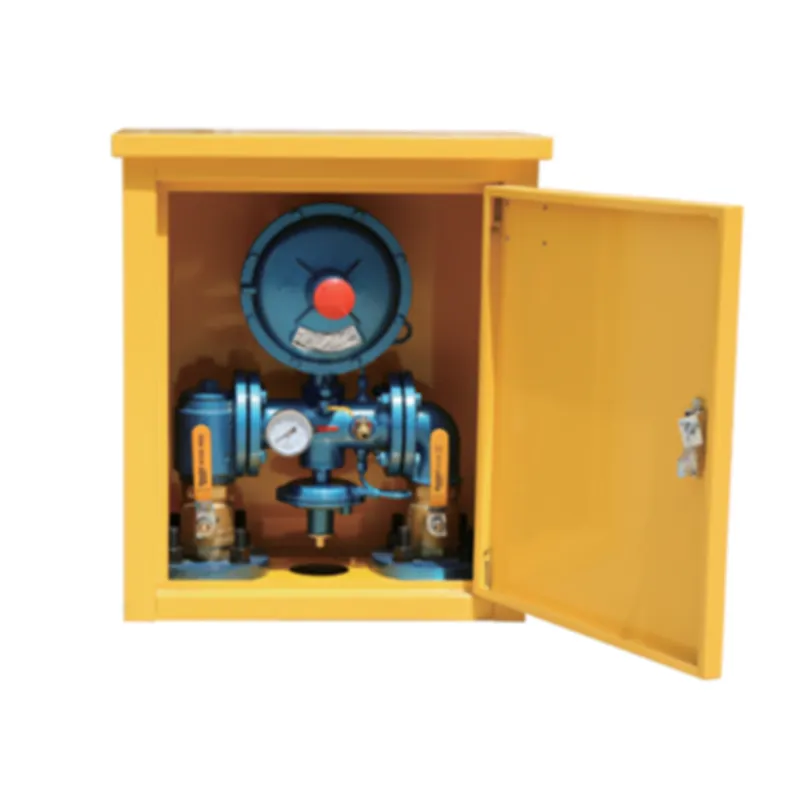
Dec . 16, 2024 15:52
Back to list
Understanding the Functionality and Importance of Natural Gas Regulators in Energy Systems
Understanding Natural Gas Regulators Their Importance and Functionality
Natural gas is a vital energy source used in homes, industries, and power generation around the world. It provides heating, cooking, and electricity generation due to its relatively cleaner burning properties compared to other fossil fuels. However, handling natural gas safely and efficiently requires a crucial component known as a natural gas regulator. This article explores the significance of natural gas regulators, their functionality, and their impact on safety and efficiency in natural gas systems.
What is a Natural Gas Regulator?
A natural gas regulator is a mechanical device that controls the pressure of natural gas supplied to homes and businesses. It ensures that the gas is delivered at a safe and usable pressure, preventing potential hazards associated with over-pressurization. The regulator’s primary function is to reduce the high-pressure gas coming from the supply line to a lower, more manageable pressure suitable for residential or commercial use.
How Does a Natural Gas Regulator Work?
The working principle of a natural gas regulator is based on pressure reduction. High pressure gas from the supply line enters the regulator, where an internal mechanism, typically involving a diaphragm and spring system, takes action. The diaphragm senses the downstream pressure, while the spring applies a counterforce. As the gas enters, it pushes against the diaphragm, causing it to move. When the downstream pressure exceeds the desired level, the diaphragm closes off the flow of gas, thereby reducing the pressure.
Regulators can be categorized into two main types line pressure regulators and demand regulators. Line pressure regulators maintain a constant outlet pressure regardless of variations in inlet pressure. They are commonly used in residential systems. On the other hand, demand regulators adjust the output based on the consumption of gas, making them more suitable for industrial applications where demand fluctuates.
Importance of Natural Gas Regulators
natural gas regulator

1. Safety One of the paramount roles of a natural gas regulator is maintaining safety. High-pressure gas can be dangerous; it poses risks of leaks, explosions, and fires. By regulating pressure, these devices help mitigate such hazards, ensuring that gas is delivered safely to appliances and systems.
2. Efficient Operation Regulators ensure that appliances receive a consistent gas supply at the correct pressure. This is crucial for the efficient performance of equipment such as furnaces, water heaters, and stoves. Inconsistent pressure can lead to appliances working inefficiently or even failing, costing consumers money in repairs and increased energy bills.
3. Environmental Considerations Using natural gas as a cleaner alternative to other fossil fuels helps reduce emissions. Regulators play an essential role in optimizing the use of natural gas, thus contributing to lower greenhouse gas emissions. Proper regulation can lead to more efficient combustion, further enhancing the environmental benefits of natural gas.
4. Regulatory Compliance In many regions, the installation and maintenance of natural gas regulators are governed by regulations. Adhering to these guidelines ensures not only the safety of the gas supply but also compliance with local laws and standards regarding gas delivery.
Conclusion
Natural gas regulators are indispensable components of any natural gas system, playing a crucial role in maintaining safety, efficiency, and compliance within gas distribution networks. Understanding their functionality and importance helps consumers appreciate the engineering behind the gas supply in their homes and businesses. Regular maintenance and checks on gas regulators ensure they continue to operate effectively, protecting users and optimizing the use of natural gas.
In a world increasingly focused on clean energy, the role of natural gas—and by extension, natural gas regulators—remains vital. These regulators drive home the importance of safe and efficient energy use, supporting not only the needs of today but also paving the way for a sustainable energy future. As advancements in technology continue to evolve, the efficacy and reliability of natural gas regulators will only improve, further enhancing their critical function across various sectors.
Latest news
-
Safety Valve Spring-Loaded Design Overpressure ProtectionNewsJul.25,2025
-
Precision Voltage Regulator AC5 Accuracy Grade PerformanceNewsJul.25,2025
-
Natural Gas Pressure Regulating Skid Industrial Pipeline ApplicationsNewsJul.25,2025
-
Natural Gas Filter Stainless Steel Mesh Element DesignNewsJul.25,2025
-
Gas Pressure Regulator Valve Direct-Acting Spring-Loaded DesignNewsJul.25,2025
-
Decompression Equipment Multi-Stage Heat Exchange System DesignNewsJul.25,2025

